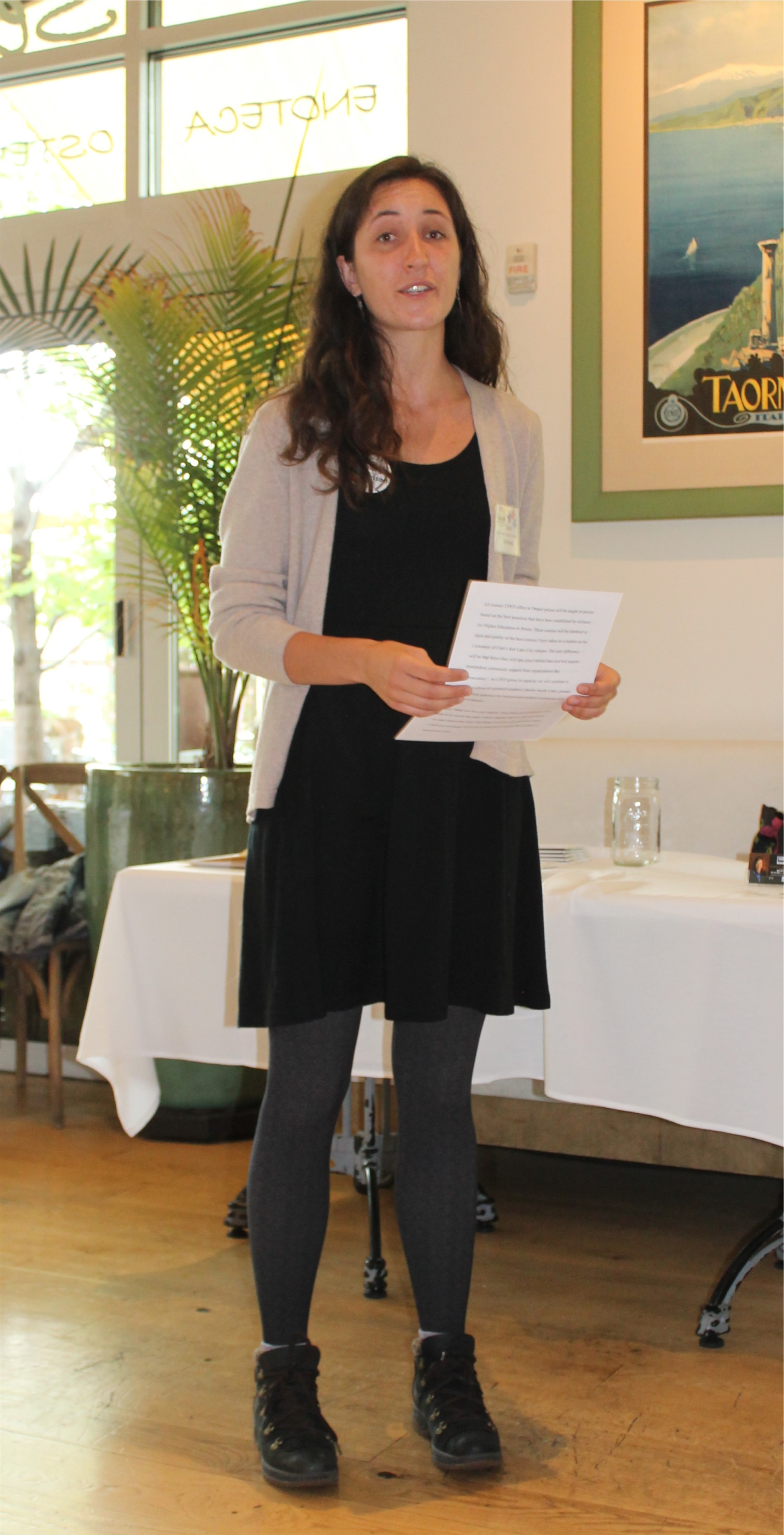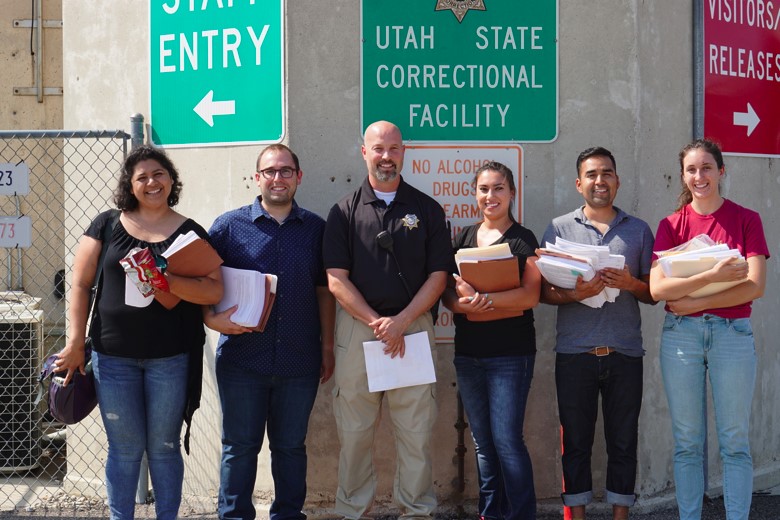Erin Feeley
Human Development and Family Studies
 In the CSBS message from the Dean, Dr. Cindy Berg refers to internships as a “transformative
educational experience.” For me, this has certainly been the case. During my time
at the U, I have had the opportunity to participate in several internships. During
each experience, I learned to bring the skills and knowledge I learned in the classroom
out into our communities; each experience demanded that I consider complex social
dilemmas such as hyper incarceration, access to healthcare, or affordable mental health
services through numerous perspectives; and none of these social issues, or any of
the most pressing issues of the modern world, can be solved without flexible, creative,
and collaborative problem-solving efforts.
In the CSBS message from the Dean, Dr. Cindy Berg refers to internships as a “transformative
educational experience.” For me, this has certainly been the case. During my time
at the U, I have had the opportunity to participate in several internships. During
each experience, I learned to bring the skills and knowledge I learned in the classroom
out into our communities; each experience demanded that I consider complex social
dilemmas such as hyper incarceration, access to healthcare, or affordable mental health
services through numerous perspectives; and none of these social issues, or any of
the most pressing issues of the modern world, can be solved without flexible, creative,
and collaborative problem-solving efforts.
The most impactful internship experience I have had has been with the University of Utah Prison Education Project (UPEP). Through this Project, we seek to reduce our reliance on the carceral state, increase educational equity, and create a more just and humane society. These, clearly, are some rather lofty goals. As a Project, we know that even the ambitious goal of providing free, sustained, and quality pathways for incarcerated folx to achieve bachelor’s degrees, cannot answer the complex challenges we face due to hyper incarceration in the U.S. However, as the state’s flagship research university, we believe that this Project is a productive step towards these goals that the University of Utah is uniquely positioned to take.
During my time as a UPEP intern, I have been challenged to collaborate with diverse
stakeholders, understand complex problems from a human perspective, and work tirelessly to find solutions to problems as small as how to get enough books into the prison
and as big as how to find funding for the Project. My education in the College of
Social and Behavioral Science has prepared me well for these kinds of tasks. For instance,
my Human Development and Family Studies major has helped me to understand the impacts of incarceration that go beyond the individual.
Incarceration disrupts some of the most critical family and community processes that
surround our children. This is particularly problematic because the carceral state
tends to focus on low income communities of color where additional additive developmental
risks can cause tremendous harm to children, creating communities where trends intergenerational
of incarceration is allowed to thrive and grow.
to find solutions to problems as small as how to get enough books into the prison
and as big as how to find funding for the Project. My education in the College of
Social and Behavioral Science has prepared me well for these kinds of tasks. For instance,
my Human Development and Family Studies major has helped me to understand the impacts of incarceration that go beyond the individual.
Incarceration disrupts some of the most critical family and community processes that
surround our children. This is particularly problematic because the carceral state
tends to focus on low income communities of color where additional additive developmental
risks can cause tremendous harm to children, creating communities where trends intergenerational
of incarceration is allowed to thrive and grow.
